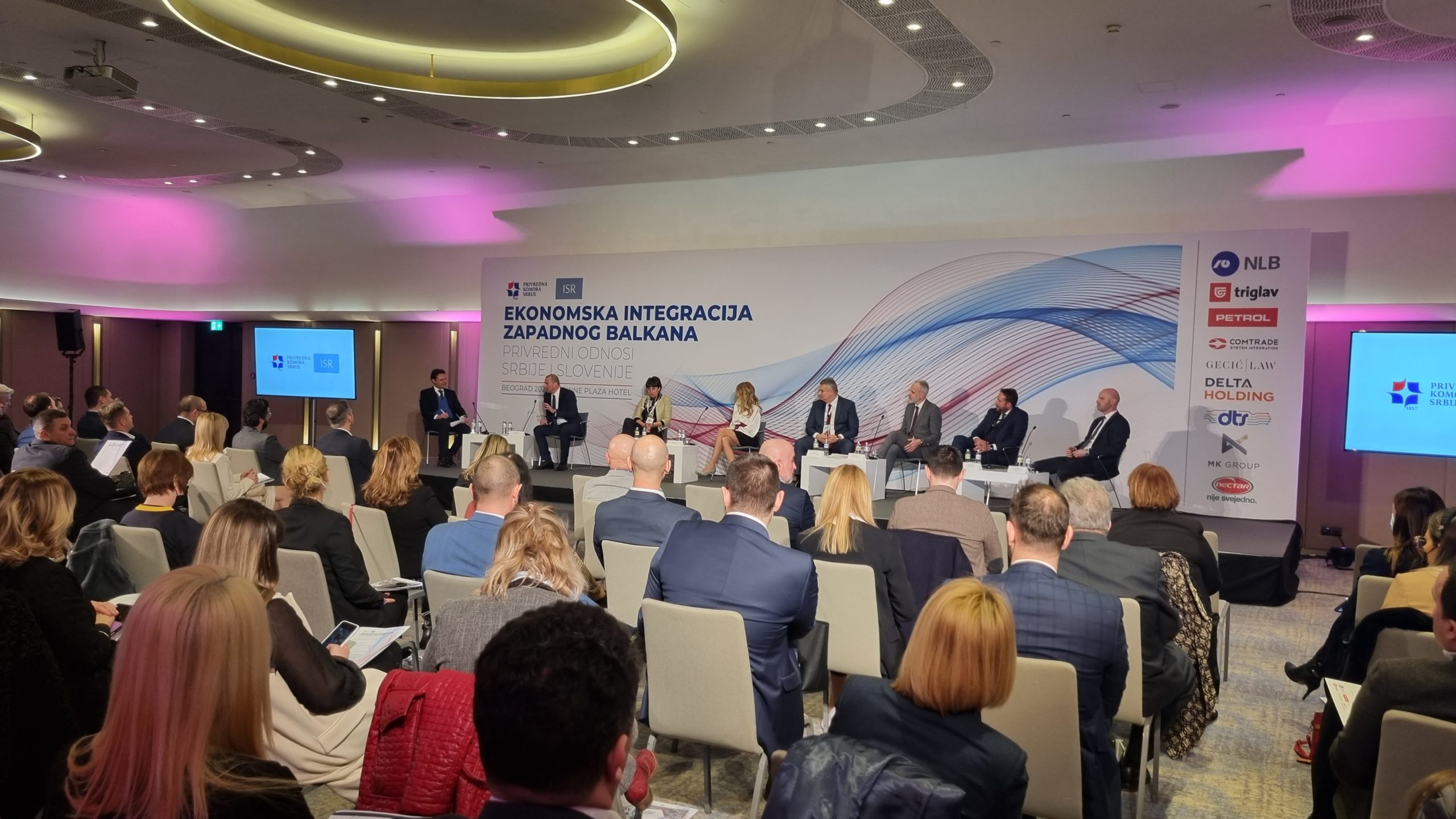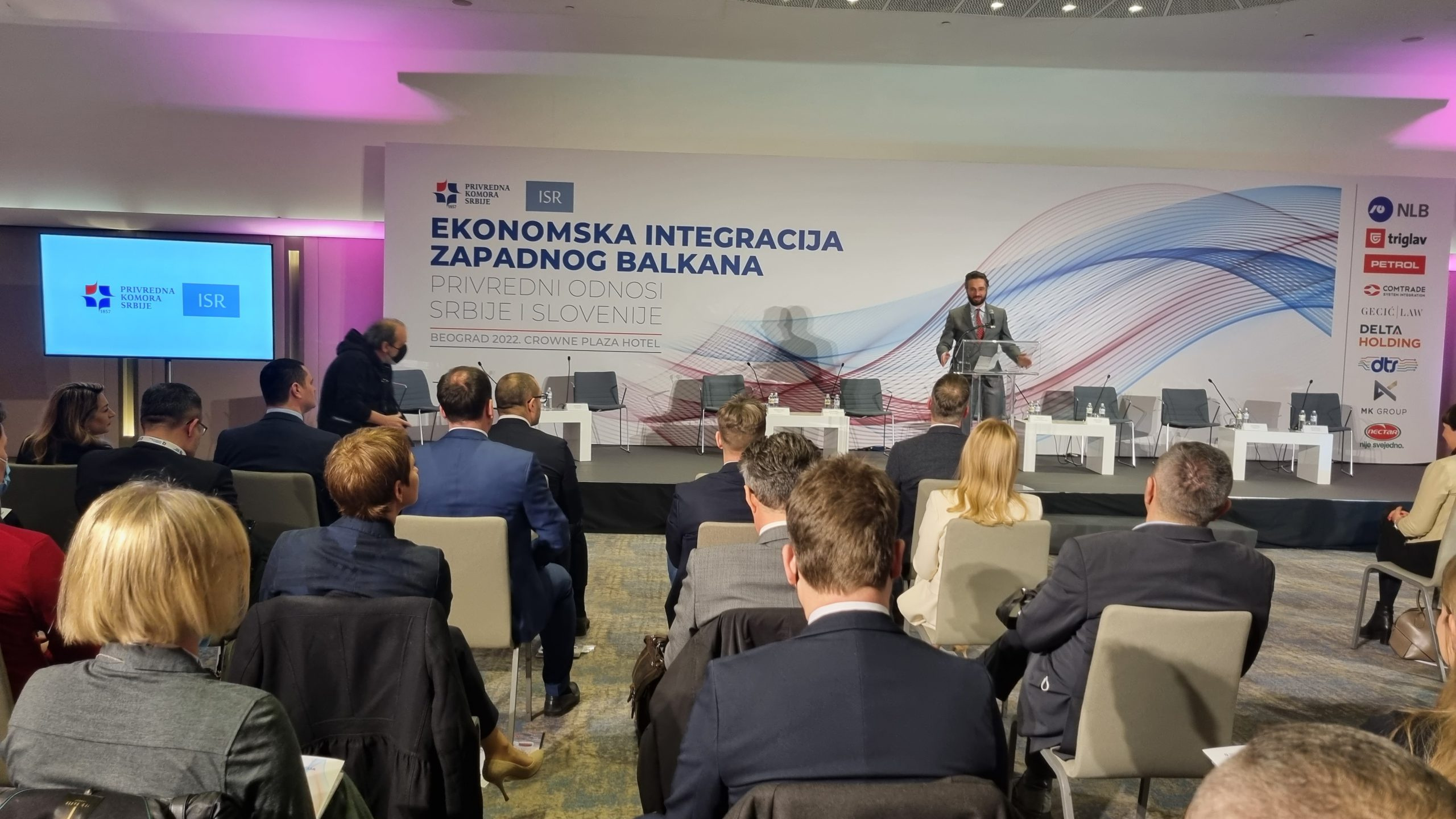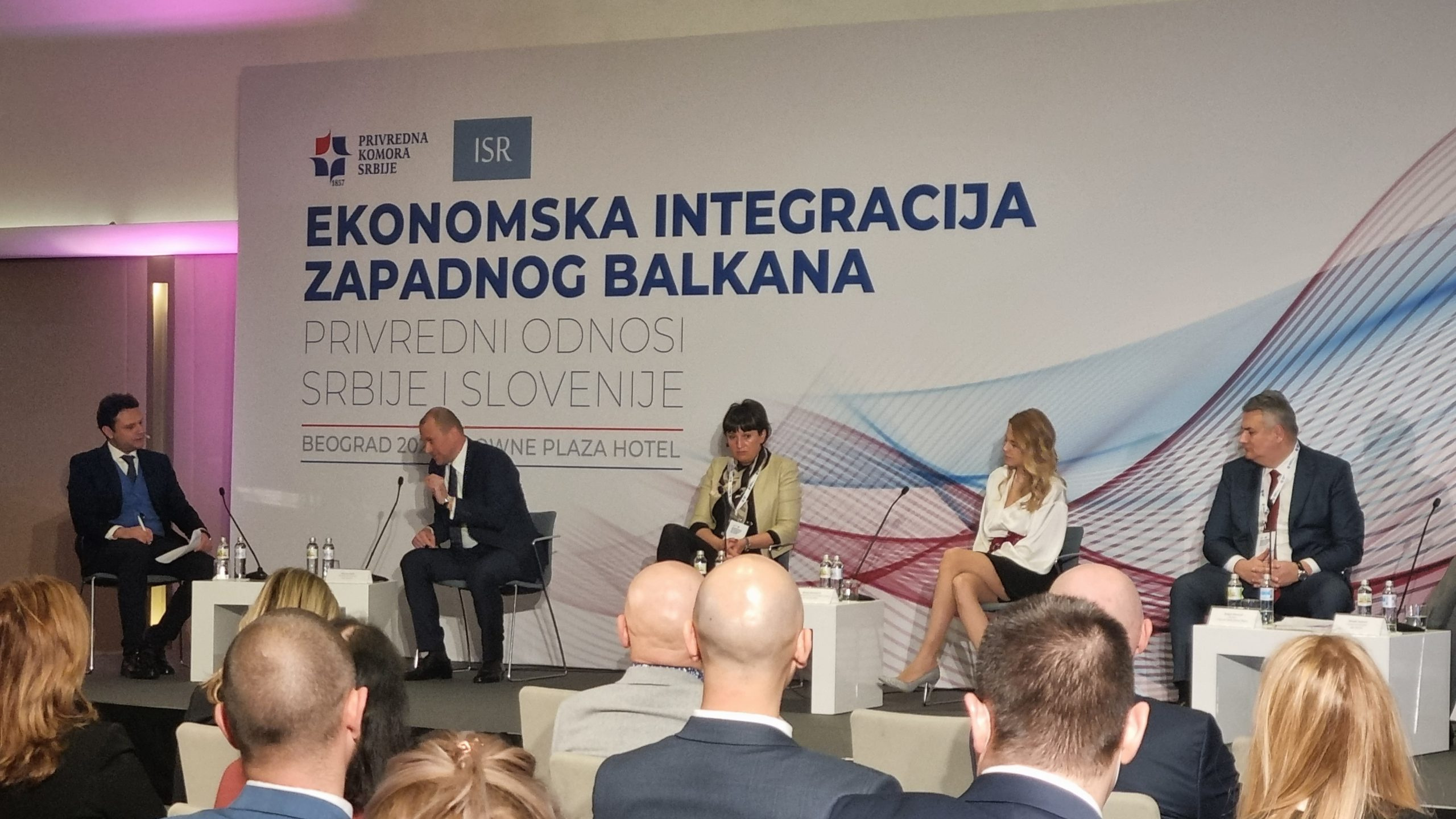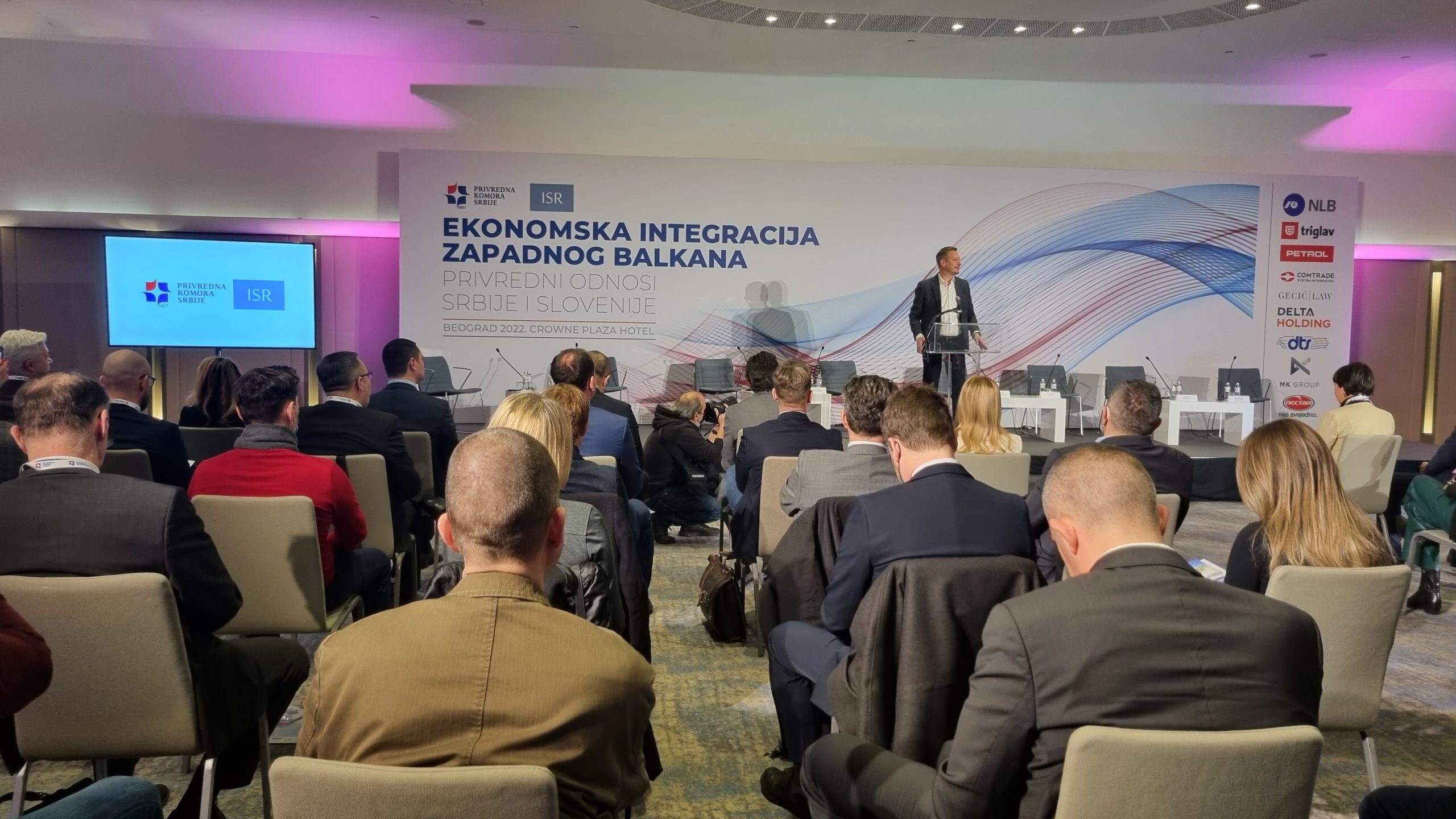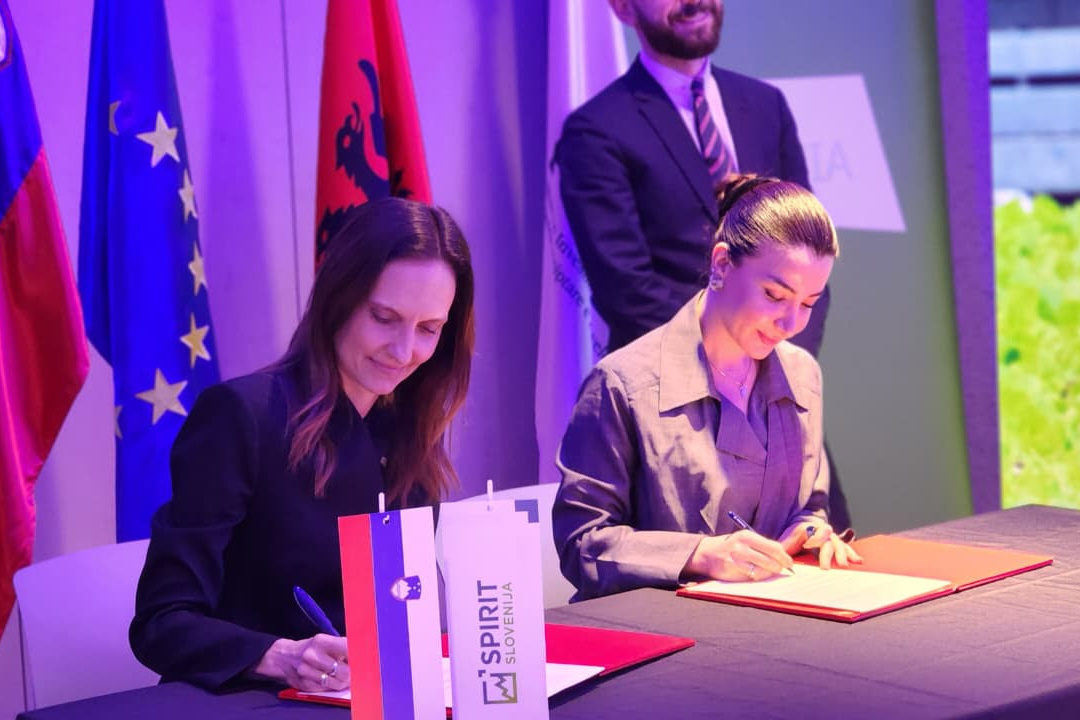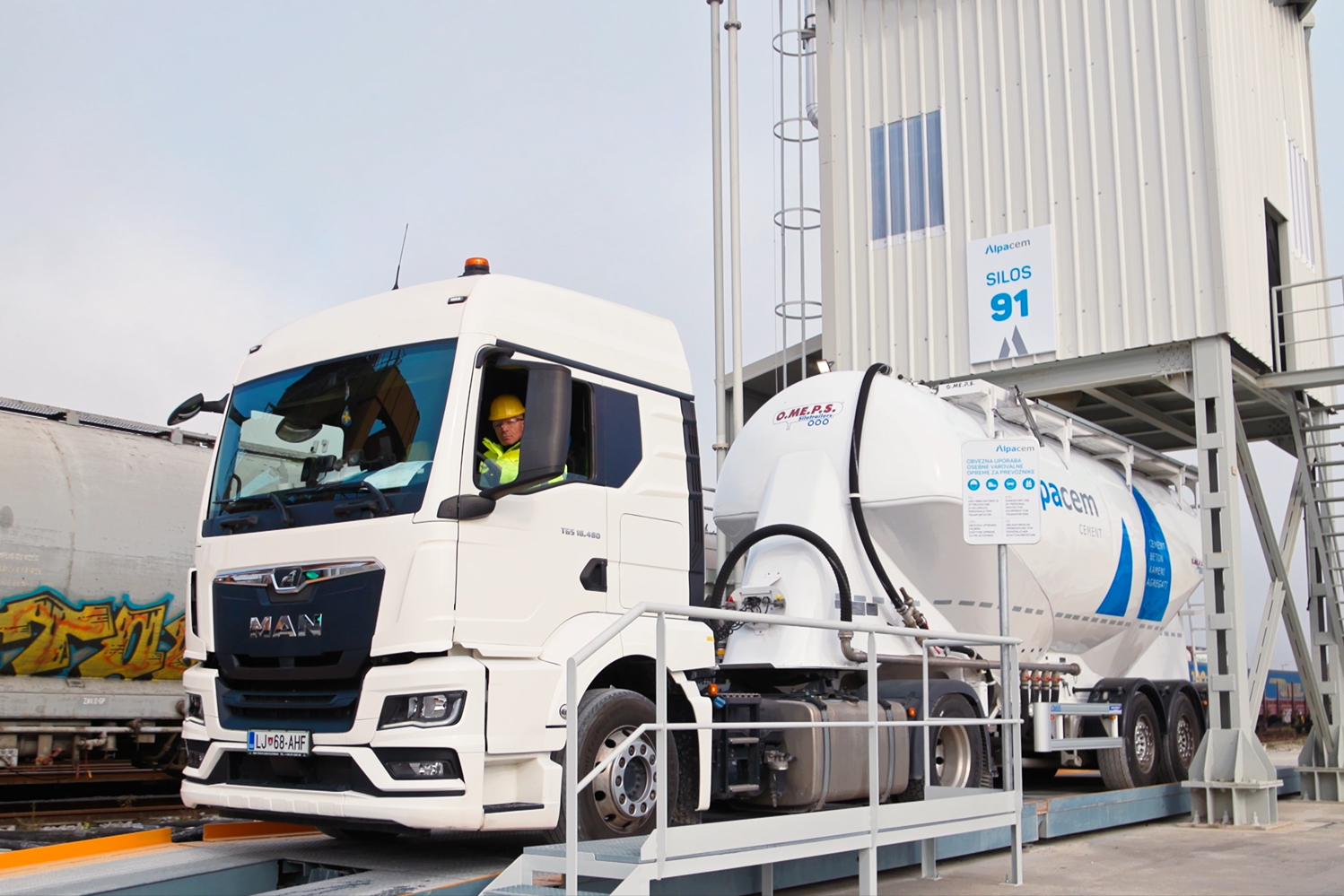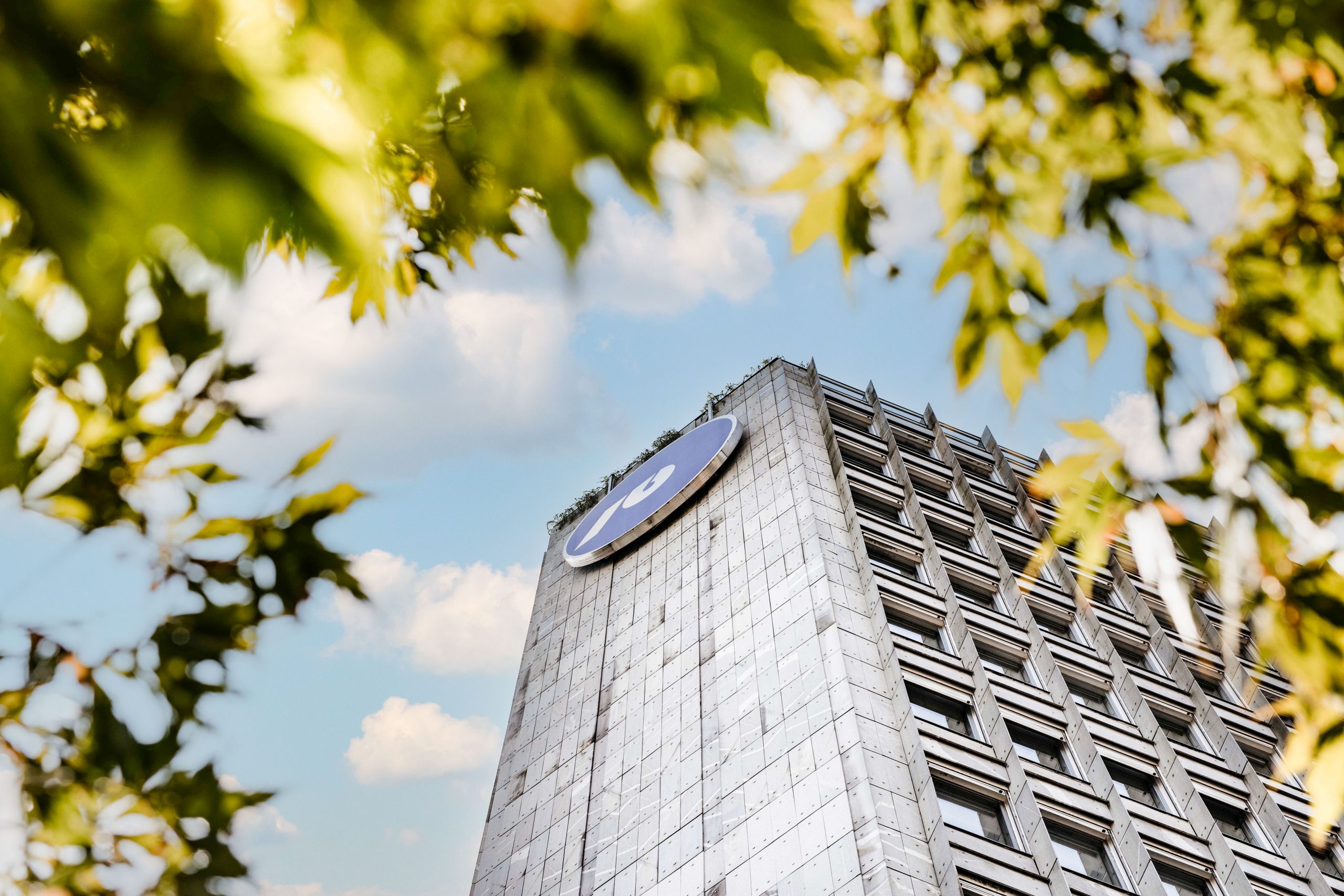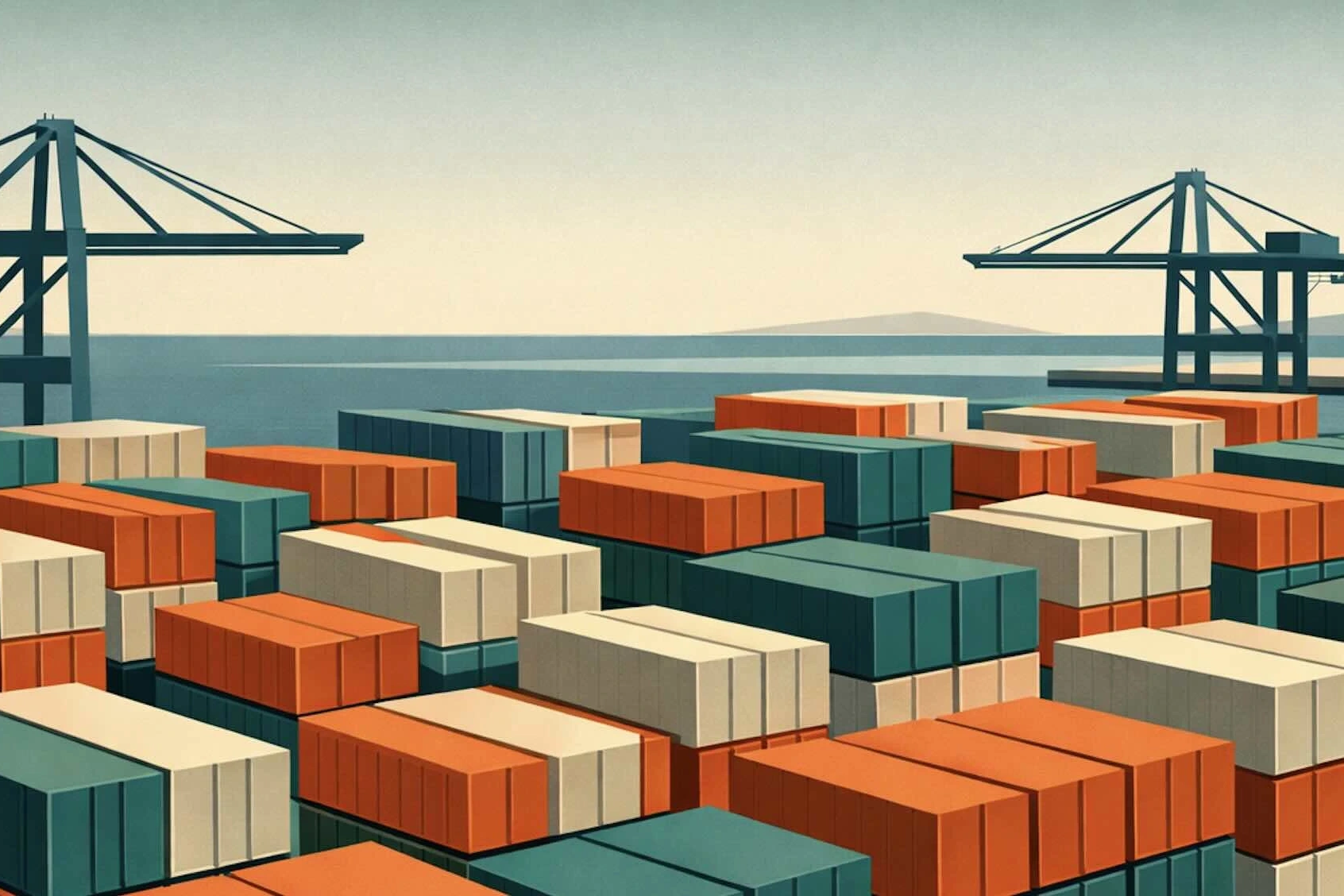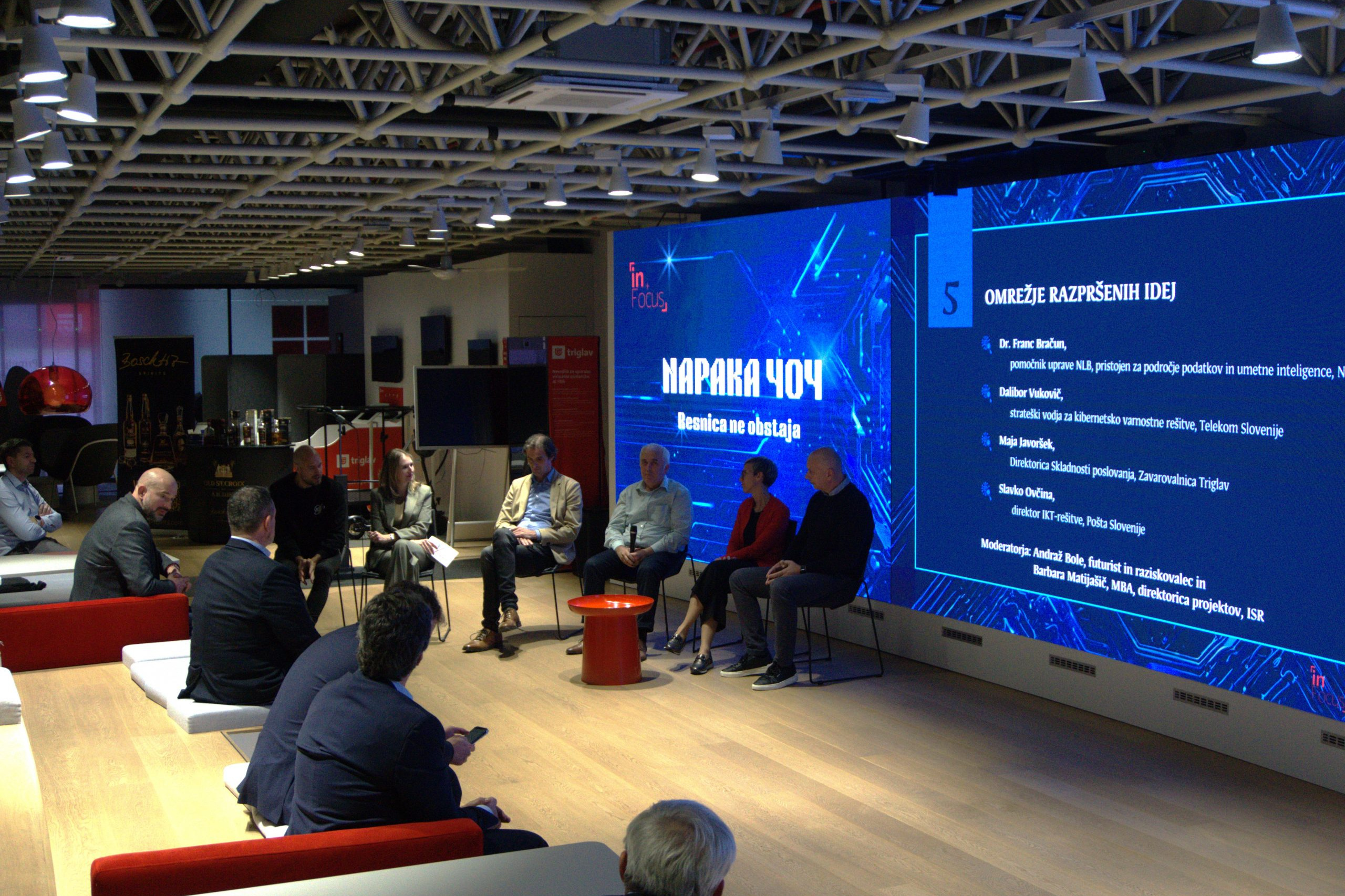Economic Integration of Western Balkans
The Western Balkans Can Create Global Champions, but Only if We Work Together
The Adriatic team
The Adriatic team
The Institute for Strategic Solutions (ISR), in cooperation with the Serbian Chamber of Commerce, organized a conference titled Economic Integration of Western Balkans. At the event, leading businessmen from Serbia and Slovenia reflected on opportunities and challenges offered by closer collaboration in the Western Balkans, with an emphasis on cooperating practices between Slovenia and Serbia. They emphasized the importance of swift economic integration of the region into the European Union. There should be no doubt: this integration is the only way for the region to make a breakthrough and prosper. At the same time, the Western Balkans have a challenge to position itself as a single, 20 million people market, which can provide the region with a better starting point on other markets, agreed representatives of some of the largest regional companies, including NLB’s CEO Blaž Brodnjak, President of the Management Board of Petrol Nada Drobne Popović, General Manager of MK Group Mihailo Janković and General Manager of Nektar Group Nenad Miščević.
“I believe we need to create regional champions. What will we offer to our children in a region of 20 million people to keep them from going elsewhere? How are we going to keep them here?” were questions raised by Blaž Brodnjak. He added that bringing together leaders in the region is the key to establishing a Scandinavian model of cooperation, which he sees as very appropriate for the region. According to Dragan Marković, CEO of Triglav osiguranje Srbija, the better infrastructure is needed for closer integration of the Western Balkans into the European space that will attract foreign investment, as well as digitalisation and automation. He is convinced that the region must support this with appropriate educational programs.
Tine Kračun, the Director of ISR, said that Serbian companies have recently been among the largest investors in Slovenia, which shows that economic and other cooperation between the two countries is strengthening. “But there is a border between us. This is the EU border. It makes economic cooperation and logistics difficult. Regional cooperation can only be fully realised if the routes are modern and the borders are open for integration and trade.”
According to Mihailo Vesović, the Director of the Serbian Chamber of Commerce, the results of cooperation between Serbia and Slovenia in the past 10 years are visible. He emphasized the importance of working efforts for even closer mutual integration. “It is crucial that measures are taken to remove obstacles for even closer cooperation. The goal is to create free economic space on the model of, for example, European Free Trade Association (EFTA), which removes obstacles for cooperation between European countries.” He sees another advantage of closer integration of the region in the joint appearances of companies from Serbia and Slovenia in foreign markets, for example in Africa.
Blaž Brodnjak, President of the NLB Management Board, believes that the current generation of businessmen should not only have the desire but also the responsibility to connect the region more closely. “We need to create regional champions. What will we offer our children in a region of 20 million to keep them from going elsewhere? How are we going to keep them here? An important answer to this challenge is smart specialization,” is convinced Brodnjak. He added that bringing together leaders in the region, both from business as well as politics, is the key to establishing a Scandinavian model of cooperation, which he sees as very appropriate for the region.
Nada Drobne Popović, President of the Management Board of Petrol, is convinced that integration in the region cannot be fully realized if companies don’t perceive themselves as regional players. Petrol walks this talk. “We wish to invest in the potential in energy sector. We are strongly present in Slovenia and Croatia. In Serbia, we see great potential for additional growth in gas, hydrogen and investments in renewable resources,” she said. The President of the Management Board of on of the largest oil companies in the region also highlighted the personnel aspect of operating as a regional company: “We already have more employees outside Slovenia than in Slovenia, although we generate half of revenue in Slovenia. To be able to carry out the processes from home, we digitalised ourselves in 24 hours during the corona period. After the end of the corona crisis, we used this know-how to improve our processes. I believe that other countries are pleasant to live in, and we as a company must ensure adequate pay so that the workforce stays in the region,” said Nada Drobne Popović in a conversation moderated by Nikola Papak, representative of the Serbian Chamber of Commerce in Slovenia.
Every market in the region is relatively small, especially in relation to Europe, but if we perceive the region as one market, this changes, said Mihailo Janković, CEO of MK Group. “We depend on each other. It is not enough to recognize the region as a single space, we must act like it as well. Our company is present both in the EU and in the region. We are proving that not only EU companies are welcome in Slovenia, but also that Serbian companies can be a good employer,” said Janković, emphasizing the importance of closer political integration into the EU, which is extremely important for the Western Balkans. MG Group sees great potential in Slovenia, with more than 200 million euros that have been invested in it so far – and with an additional 300 million euros of investment planned.
Marija Desivojević Cvetković, Senior Vice President for Strategy and Development at Delta Holding, says that in the region, in addition to the visible, there are also invisible borders, those in our heads. “It is clear that the only real path for the region is in the EU. Until that happens, states must act on their own. They need to establish a market that takes advantage of the same customer habits that undoubtedly exist thanks to a common past. “The Open Balkans initiative is welcome, but this process must be monitored by someone else. This could be Brussels. This way, the region will also catch up faster with the pace and direction in which the whole world is moving, “said Marija Dešivojević Cvetković.
“The right way is for this area as well as businesses operating in the region is to simplify everything they do as much as possible. Organizational structures, processes and other procedures. Just like in sports, you have to be fast in business. ”According to Nenad Miščević, CEO of the Nektar Group, a global company that is also present in Slovenia with its ownership in Fructal. Companies today have one common challenge, and that is inflation; Nektar Group, which operates in the food industry is of course also faced by it. “We cannot pass on the higher costs entirely to consumers. The company must also look for internal optimization and reserves,” pointed out Miščević, adding that they want to position Fructal as a premium brand in the food and beverage industry in the future.
Dušan Miličević, CEO of Comtrade Group, put the characteristic of resourcefulness in the region at the center of his thoughts. “The creativity this space possesses and which is very pronounced, for example, in sports, should be better used in the economy.” He pointed out that Serbia is among the leaders in the world in terms of the share of companies using cloud IT solutions. Integration seems extremely important to him. “We have to look at the region as one space and adjust the processes and the way we operate,” said Miličević.
Dragan Marković, CEO of Triglav osiguranje Srbija, presented his views on the integration of the Western Balkans from the point of the insurance industry. According to him, the first condition for closer integration is an even better infrastructure that will attract foreign investment. Marković also mentioned sustainable strategy and digitalisation as well as automation as important pillars. The region must promote these verticals through educational programs that adequately support the goals. “The insurance industry is an integral part of economic development. We must be prepared for the enlargement of the EU as best as we can be. During the corona crisis, it became clear that this region could help others as well. Serbia, for example, has donated the necessary vaccines to other countries.”
Slobodan Šešum, Acting Director-General of the Directorate for Economic and Public Diplomacy at the Slovenian Foreign Ministry, emphasized the importance of the region’s enlargement and integration into the EU to happen fast. It is the main export market for both Slovenia and Serbia. That is why it is important to remove the borders that hinder economic cooperation as soon as possible, is convinced Šešum, adding that a quarter of Slovenian companies plan to invest in Serbia and Croatia as well as in other countries in the region.

